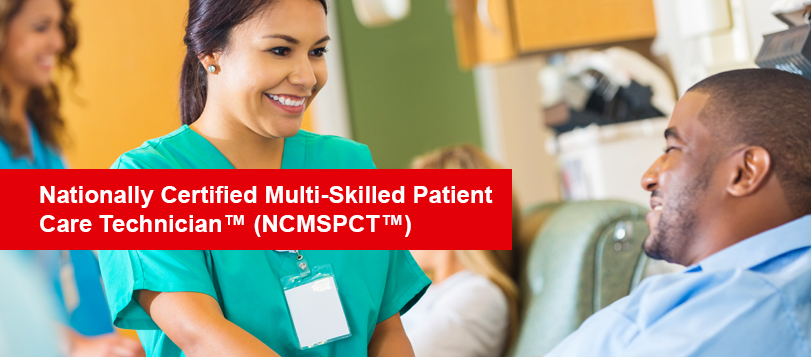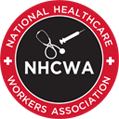
Certified Patient Care Technicians (PCTs) can work under the supervision of Registered Nurses, Licensed Practical Nurses, physicians and other medical professionals to provide direct care to patients. PCTs can work in a variety of health care environments, performing many of the tasks that used to be carried out by nurses. This includes:
- Measuring vital signs
- Collecting specimens
- Observing and reporting patient behavior changes
- Taking care of patient personal hygiene and grooming
Where Does a Patient Care Technician Work?
Patient Care Technicians have excellent job opportunities, with many being employed by hospitals, nursing homes, doctor’s offices, labs and clinics. The PCT’s main job responsibilities are assisting patients that are hospitalized, in rehabilitation, or at assisted living or long-term care facilities with many of the tasks that they cannot do for themselves. This includes eating, getting out of bed, brushing their teeth and taking a bath.
For Patient Care Technicians who are certified, job prospects are expected to grow rapidly in the coming years. To pursue a career as a certified PCT, there are certain educational requirements that must be met. A number of universities and vocational schools offer Patient Care Technician programs. The programs equip students with the skills to communicate effectively with patients and other healthcare workers. Some certified Patient Care Technicians may also choose to use their training and experience to pursue careers in nursing.
The Importance of Certification
NHCWA Certification allows healthcare workers and employers to validate their knowledge and abilities and the mastery of industry-specific skills. Achieving certification helps healthcare organizations demonstrate that their business is run effectively by qualified staff. Meanwhile, recertification reflects a commitment to ongoing learning and improvements. Additionally, organizations that are NHCWA certified can successfully demonstrate to patients, employees and other companies that they use industry-respected best practices.
NHCWA Certification Benefits Patients and Families: NHCWA Certification provides validation that a medical organization and its employees have demonstrated the necessary knowledge and skills to meet the complex requirements of the healthcare industry. This ensures high quality care delivery, which can give patients and families peace of mind.
NHCWA Certification Benefits Healthcare Professionals: In order to become certified, healthcare professionals must validate their industry-specific knowledge and skills. Passing the certification process allows them to position themselves for appropriate recognition, and it can give them a critical sense of confidence and achievement.
NHCWA Certification Benefits Employers: Certification is a vehicle for hospitals to distinguish themselves from competitors. It demonstrates to consumers that the organization attracts only the most skilled and experienced healthcare workers. Achieving NHCWA certification (and meeting the continuing education requirements necessary to maintain it) also contributes to an environment of professionalism and a culture of employee retention. This is especially critical given the severe shortage of qualified healthcare workers.
NHCWA Patient Care Technician Certification Requirements:
One of these requirements must be met:
- Graduation from an allied health vocational training program
- One year of work experience in the field
- Military experience/training in the field
- Reciprocity from another certifying agency
NHCWA Certification Requirements for Patient Care Technician Certification:
The following skills requirements are mandatory and must be met for NHCWA certification: The NHCWA requires CPR certification for all medical professionals applying for NHCWA certification.
*Must hold a current valid State Certified Nursing Assistant/CNA licenses. (no exceptions)
- Current CPR certification
- A minimum of 25 successful venipuncture’s
- A Minimum of 10 successful Skin puncture’s
- A Minimum of 10 EKG Test Strips
(In addition check your states requirements for minimum EKG strips & venipuncture Sticks some states require an average of 15 EKG Test Strips and 30 venipuncture Sticks)
Click here to register
Click here TO RENEW YOUR CERTIFICATION
Click here TO VISIT NHCWA SELF-SERVICE PORTAL
Click here TO VERIFY CERTIFICATION
